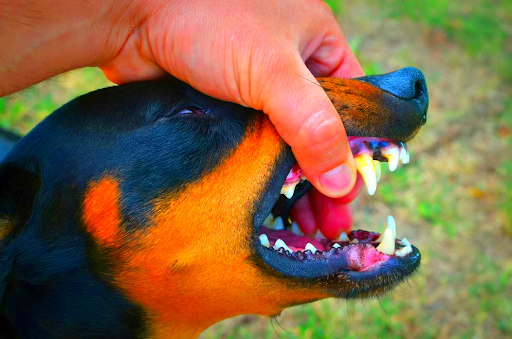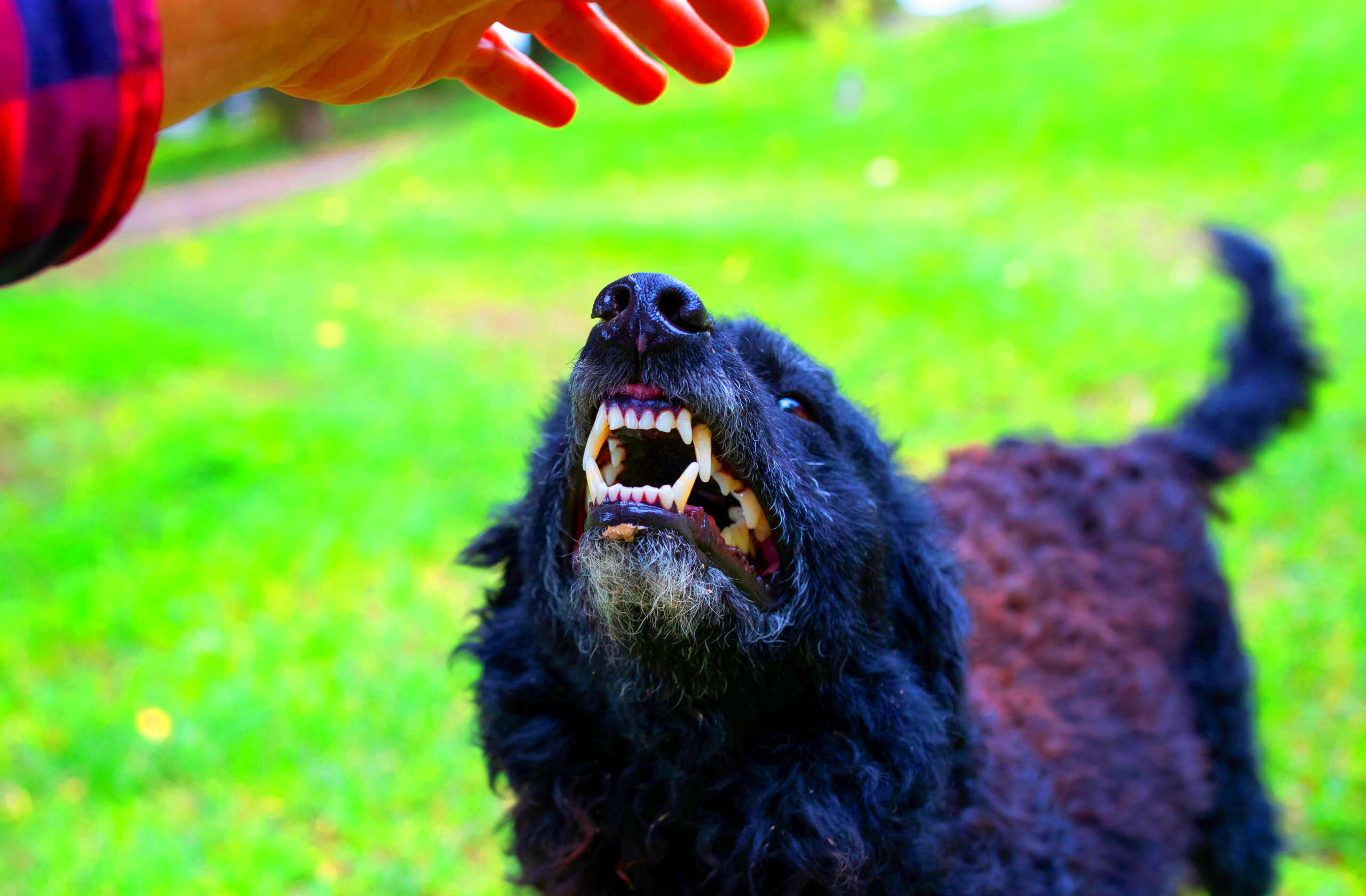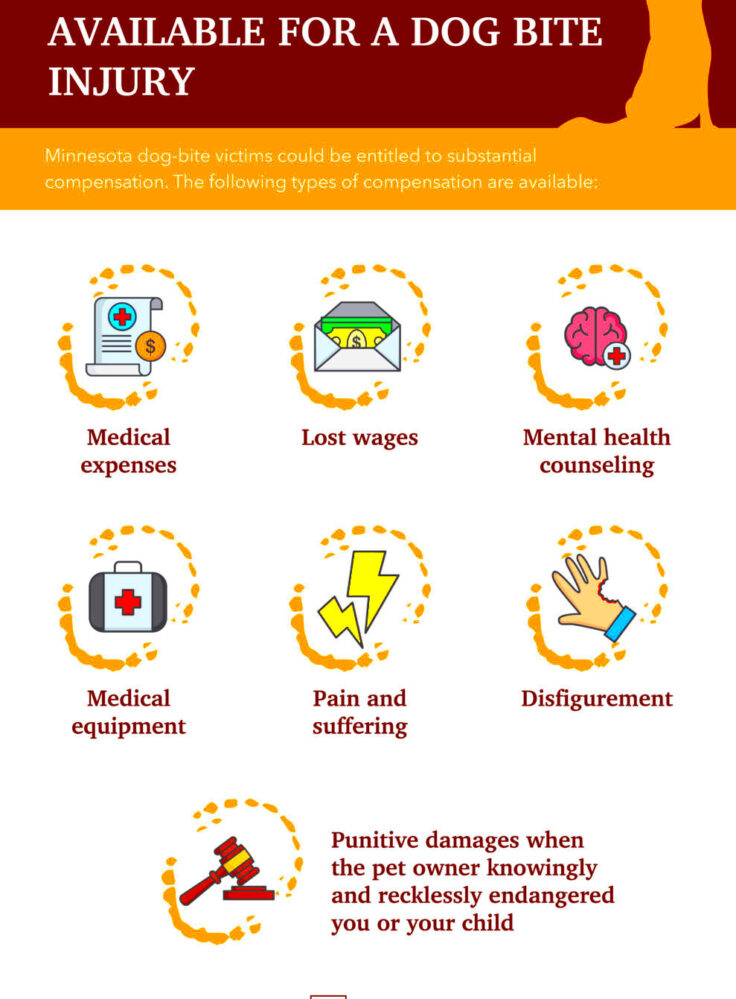Minnesota Dog Bite Laws and Legal Recourse for Victims
Minnesota dog bite laws are designed to protect victims and outline the responsibilities of dog owners. These laws determine liability and compensation for injuries resulting from dog attacks. Understanding these laws can help victims navigate their legal options after an incident. Minnesota follows a “strict liability” rule for dog bites, meaning owners are generally liable if their dog bites someone, regardless of the dog’s past behavior. This approach is essential for victims seeking justice and compensation for their injuries.
Who is Responsible for Dog Bites

Determining responsibility in a dog bite case can be complex. Here are some key points to consider:
- Dog Owners: Typically, the dog owner is liable for any injuries caused by their dog. This liability applies even if the dog has no prior history of aggression.
- Property Owners: If a dog bites someone on their property, the property owner may also share liability, especially if they knew about the dog’s dangerous tendencies.
- Handlers: If someone else was in control of the dog at the time of the bite, they could be held liable, particularly if they were negligent in handling the dog.
- In certain cases: Other parties, such as landlords or dog sitters, might also bear some responsibility depending on the circumstances.
Understanding who is responsible can significantly impact the compensation a victim may receive.
Types of Dog Bite Cases in Minnesota

In Minnesota, dog bite cases can vary based on the circumstances surrounding the incident. Here are the common types of cases:
- Unprovoked Attacks: When a dog attacks without any provocation, the owner is typically held strictly liable.
- Provoked Attacks: If the victim provoked the dog, the owner’s liability may be reduced or eliminated.
- Injuries from Dog Escaping: If a dog escapes its owner’s property and causes injury, the owner can still be liable under strict liability laws.
- Dog Bites in Public Places: If a dog bites someone in a public area, the owner may be liable unless the victim provoked the dog.
Each case is unique, and understanding these types can help victims seek appropriate legal recourse.
Legal Recourse for Dog Bite Victims

If you’ve been bitten by a dog in Minnesota, it’s essential to know your legal options. Victims have the right to seek compensation for their injuries and emotional distress. Minnesota’s dog bite laws provide various avenues for recourse. Here’s how you can pursue justice:
- File a Personal Injury Claim: Victims can file a claim against the dog owner to recover damages related to medical bills, lost wages, and pain and suffering.
- Negotiate Settlements: Many cases are settled out of court. Engaging in negotiations with the dog owner’s insurance company can lead to a satisfactory resolution without the need for a lengthy trial.
- Seek Legal Representation: Consulting a personal injury attorney can help you understand your rights and build a strong case. An attorney can also handle negotiations and represent you in court if necessary.
- Report the Incident: Documenting the dog bite by reporting it to local authorities can help strengthen your case and ensure that proper actions are taken against the dog owner.
Being informed about these options can empower victims to take the necessary steps toward recovery and justice.
Steps to Take After a Dog Bite Incident
After a dog bite, your immediate actions can significantly impact your recovery and any potential legal claims. Here are the crucial steps to follow:
- Seek Medical Attention: The first priority should always be your health. Even if the injury seems minor, get checked by a healthcare professional.
- Document the Incident: Take photos of your injuries and the location where the bite occurred. Gathering evidence is vital for your case.
- Identify the Dog and Owner: If possible, get the contact information of the dog owner and any witnesses. Knowing the dog’s vaccination history is also important.
- Report the Bite: Notify local animal control or law enforcement about the incident. This can help protect others and may be necessary for your claim.
- Consult an Attorney: Speak with a personal injury lawyer experienced in dog bite cases to understand your rights and potential compensation.
Taking these steps can aid in your recovery and lay the groundwork for any legal action you may wish to pursue.
Compensation for Dog Bite Injuries
Victims of dog bites in Minnesota may be entitled to various forms of compensation depending on the severity of their injuries and the impact on their lives. Here’s a breakdown of potential compensation types:
- Medical Expenses: This includes costs for hospital visits, surgeries, medications, and follow-up care.
- Lost Wages: If your injuries prevent you from working, you may be compensated for lost income during your recovery.
- Pain and Suffering: Victims can seek damages for physical pain and emotional distress caused by the attack.
- Rehabilitation Costs: If you require physical therapy or other rehabilitation services, these costs can be included in your compensation claim.
- Permanent Disability: In cases where injuries result in long-term effects, additional compensation for ongoing care and lifestyle changes may be available.
Understanding these compensation types can help victims better prepare for discussions with their attorneys and insurance companies, ensuring they receive fair treatment and support for their recovery.
Statute of Limitations for Filing a Claim
When it comes to filing a claim for a dog bite in Minnesota, time is of the essence. The statute of limitations is the timeframe within which you must initiate legal action. In Minnesota, the statute of limitations for personal injury cases, including dog bites, is typically two years from the date of the incident. Here’s what you should know:
- Importance of Timeliness: If you fail to file your claim within this two-year window, you may lose your right to seek compensation altogether.
- Exceptions to the Rule: In some cases, the statute of limitations may be extended. For instance, if the victim is a minor or if the dog owner was not immediately identifiable, the timeframe may be adjusted.
- Consultation is Key: Because statutes can be complex, it’s wise to consult with a personal injury attorney who can guide you through the legal process and ensure you meet all deadlines.
Understanding the statute of limitations is crucial for victims seeking justice and compensation. Don’t wait too long to take action; reaching out for legal advice early can make all the difference.
Frequently Asked Questions about Dog Bite Laws
Many people have questions regarding dog bite laws and their rights as victims. Here are some common inquiries:
- What should I do immediately after a dog bite? Seek medical attention, document the incident, and report it to local authorities.
- Can I file a claim if I provoked the dog? Yes, but your compensation may be reduced based on your level of provocation.
- How much can I expect in compensation? Compensation varies widely based on the severity of injuries, but it can cover medical expenses, lost wages, and pain and suffering.
- Do I need a lawyer to file a claim? While it’s not mandatory, having an attorney can help navigate the complexities of the legal system and increase your chances of a favorable outcome.
- What if the dog owner is uninsured? You may still have options for compensation through your own insurance or other means.
Being informed can empower victims and help them make the best decisions following a dog bite incident.
Conclusion
Understanding Minnesota’s dog bite laws and the legal recourse available is essential for victims seeking justice. By knowing your rights, taking immediate action after an incident, and seeking proper compensation, you can navigate the aftermath of a dog bite more effectively. Always remember to consult with a personal injury attorney who can provide valuable guidance tailored to your situation. Don’t hesitate to seek help; your well-being and recovery are paramount. Knowledge and preparation are your best allies in ensuring that you receive the justice and compensation you deserve.


